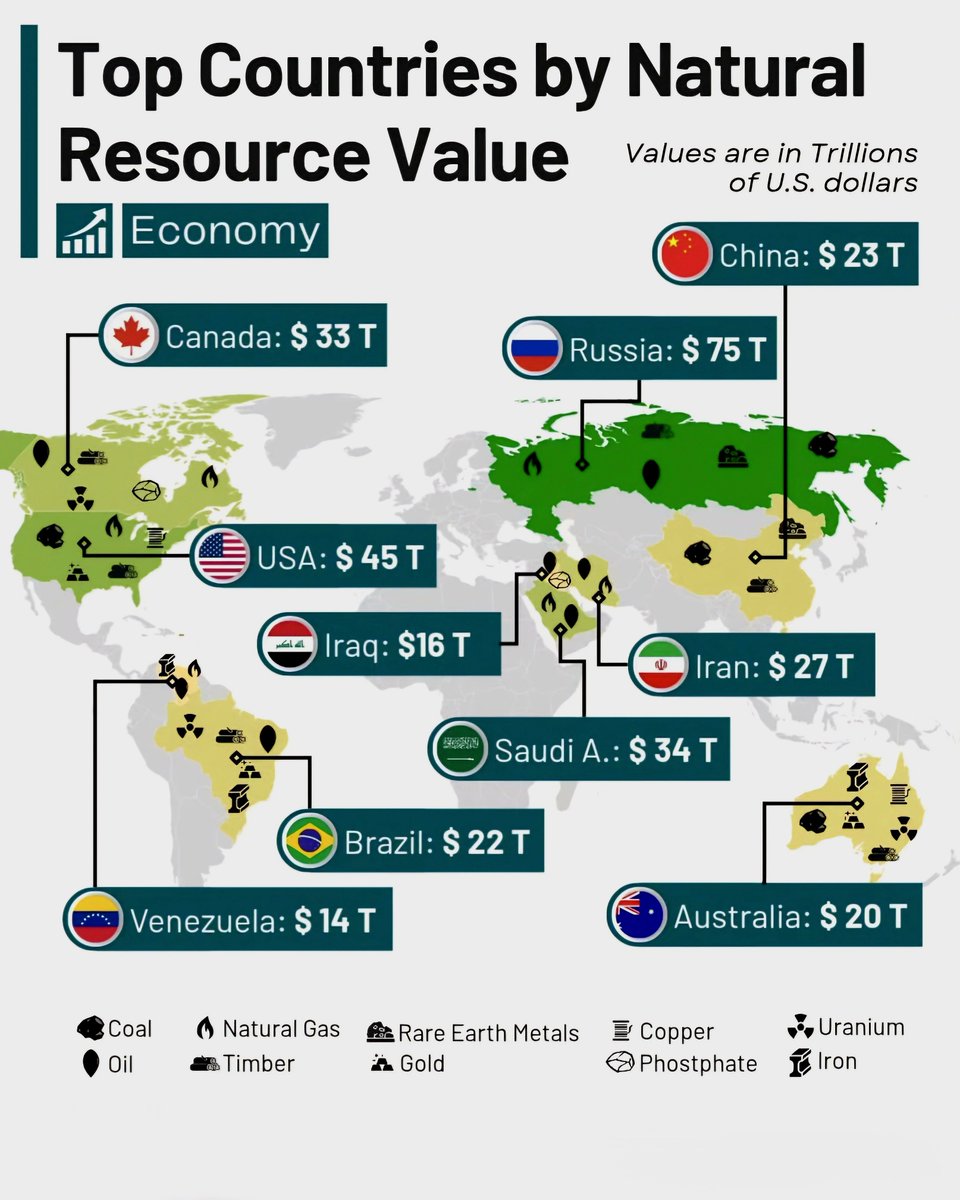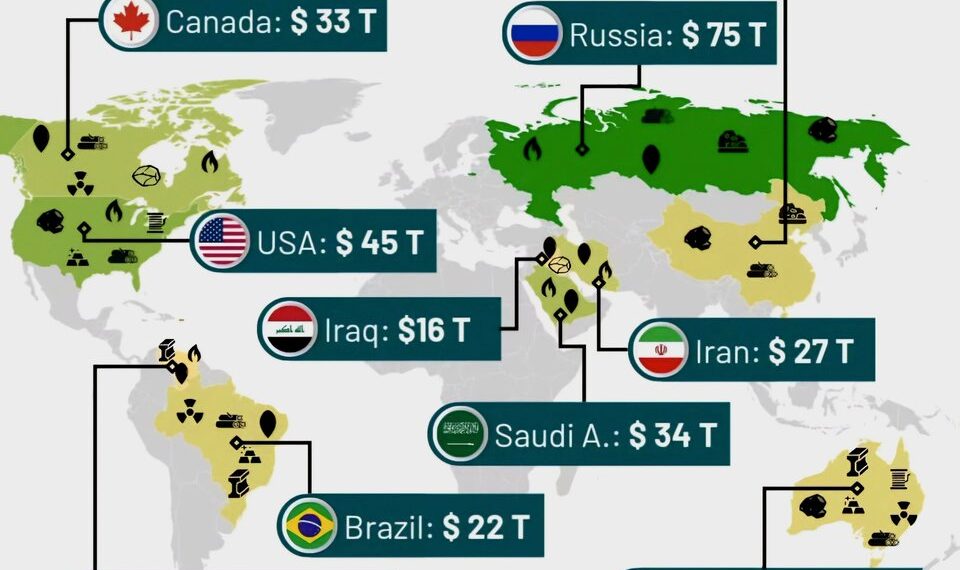Select Language:

The 10 Wealthiest Countries Based on Natural Resources in 2025
1. Russia – $75 Trillion
Russia continues to hold its position as the world’s wealthiest nation in terms of natural resources, boasting an estimated resource value of $75 trillion. Its vast expanse includes rich reserves of oil, natural gas, minerals, and timber. Major exports such as crude oil and natural gas sustain its economy, making Russia a pivotal player in the global energy market. Recent investments have also expanded its rare earth mineral deposits, reinforcing its dominance in critical materials necessary for technology and defense sectors.
2. United States – $45 Trillion
The United States remains a powerhouse in natural resource wealth, valued at approximately $45 trillion. Its diverse landscape provides an extensive array of resources, from shale oil and natural gas to coal, minerals, and agricultural products. Technological advancements have unlocked new extraction methods, particularly in shale regions, boosting production. The U.S. has also increased its focus on sustainable resource management and renewable energy sources, diversifying its resource portfolio.
3. Saudi Arabia – $34 Trillion
Saudi Arabia’s economy is predominantly fueled by its massive oil reserves, valued at around $34 trillion. The nation continues to be one of the top oil producers, with its reserves critical to global energy stability. Recent diversification efforts, including the Vision 2030 initiative, aim to reduce dependency on oil, developing sectors like tourism and entertainment. Nonetheless, oil remains the backbone of Saudi economic resource wealth.
4. Canada – $33 Trillion
Canada’s abundant natural resources, valued at approximately $33 trillion, include vast reserves of oil sands, minerals, forests, and freshwater. Its energy sector has seen growth through technological innovations, enabling more efficient extraction of oil sands and other minerals. The country is also investing heavily in sustainable forestry practices and clean energy to balance economic growth with environmental commitments.
5. Iran – $27 Trillion
Iran holds significant reserves valued at nearly $27 trillion, particularly in oil and natural gas. Despite geopolitical challenges and sanctions, Iran remains a key player in global energy markets. Recent developments involve slight easing of sanctions, which could enhance its ability to develop and export its resources further, potentially increasing its share in the global resource economy.
6. China – $23 Trillion
With a resource valuation of about $23 trillion, China is one of the largest consumers and producers of natural resources globally. The nation’s extensive mining and energy sectors include coal, rare earth elements, and renewable energy materials. China’s push towards green energy has spurred investments in lithium, cobalt, and other critical minerals necessary for electric vehicles and renewable storage solutions.
7. Brazil – $22 Trillion
Brazil’s natural resource wealth, estimated at $22 trillion, features rich reserves of iron ore, bauxite, oil, and extensive forests. The Amazon rainforest remains a vital but challenging resource, balancing economic gains with environmental conservation. Recent policies focus on sustainable mining and expanding renewable energy projects such as hydroelectric and wind power.
8. Australia – $20 Trillion
Australia’s resource wealth is estimated at $20 trillion, primarily in minerals, coal, and natural gas. The country is a leading exporter of iron ore and has large deposits of lithium and rare earth elements, vital for electronics and green technology. Continued investment in sustainable mining practices aims to ensure ecological preservation while maintaining economic growth.
9. Iraq – $16 Trillion
Iraq’s resource valuation stands at roughly $16 trillion, mostly driven by its vast oil reserves. Political stability and improved infrastructure are poised to unlock more of its resource potential. Recent initiatives focus on diversifying its economy beyond oil, including developing other minerals and promoting renewable energy sources.
10. Venezuela – $14 Trillion
Venezuela’s natural resource wealth, valued at about $14 trillion, is primarily due to its extensive oil reserves. Despite economic hardships and political turmoil, Venezuela remains a significant oil supplier. Investment in modernization and infrastructure could potentially revive its oil industry and unlock further resource value.
In 2025, these rankings reflect both the continent’s resource endowments and the global efforts toward sustainable, responsible resource management.
Source: Statista, updated as of 2025.







